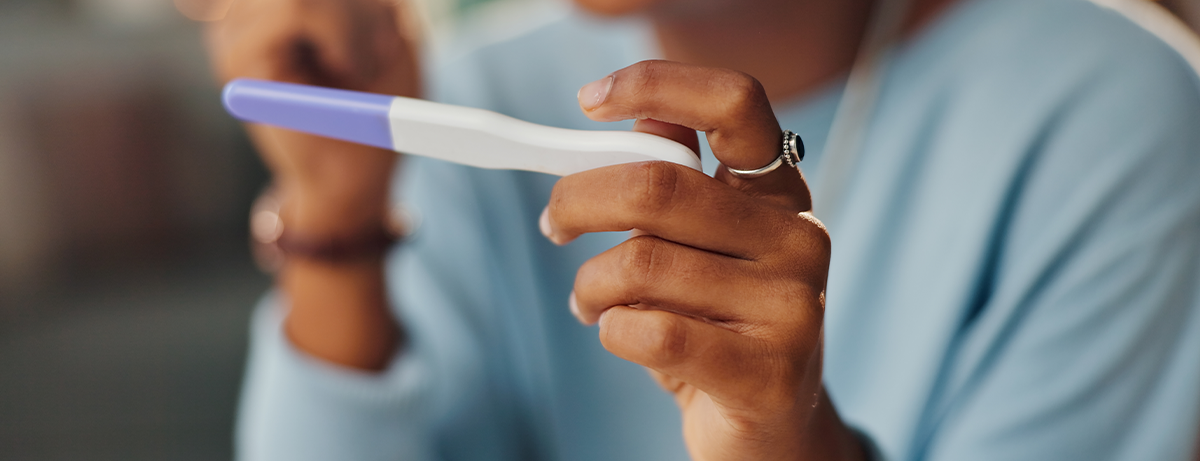15% off £25 or 20% off £35
Code:BASKET
Kate Pleace's experience of early menopause

We dive into one woman’s story on her experience of premature menopause.
We dive into one woman’s story on her experience of premature menopause. Menopause before the age of 45 is called early menopause, however premature menopause happens before the age of 40. And in Kate's case, her symptoms started to develop in her early thirties.
Premature menopause is rare, and estimated to affect 1% of women under the age of 40 years and 0.1% of women under the age of 30 years. However, that’s still thousands of women that might not be getting the support they need or know of other women going through something similar.
The thought of going through menopause during your 20s, 30s and even 40s feels like something that will never happen to you. We’re educated on periods, safe sex, pregnancy and caring for a child but never about menopause.
Read on for more details on Kate’s story, how it felt to find out they had premature menopause and how their lives are now…
“Once I became a patient, I learnt so much more about the journey.”
Kate Pleace is a women's health nurse who specialises in both fertility and menopause, she works as a nurse lecturer at Dublin City University on their women's health nursing pathway. Kate is also studying a part time PhD with the Centre for Reproductive Research at De Montfort University, looking at women's lived experience of a premature menopause.
When diagnosed with premature menopause at the age of 34, Kate was already a specialist women's health nurse and had good knowledge of the menopause from both working in a clinical role and a previous academic study. This isn’t something that every woman is lucky enough to be aware of, however she tells us “Once I became a patient, I learnt so much more about the journey.”
“You never think it will happen to you.”
During the time of diagnosis, Kate and her husband were having fertility treatment, sadly their second IVF cycle using Kate’s eggs had been cancelled due to no response. “Because I was having fertility treatment some of the medication likely masked some of the symptoms of menopause.” It wasn’t until after Kate had stopped the medication used for the treatment that she gradually experienced irregular periods, increased anxiety, fatigue, and low mood.
Even though it wasn't a complete surprise, it was still a shock, “you never think it will happen to you.” Working in an area closely related to her diagnosis, Kate recalled it was an ongoing challenge as “there was a constant reminder of my own individual circumstances.”
For Kate, HRT was a big game changer, once she’d found the right regime that worked for her. HRT won’t be for everyone, but Kate found it helped regulate her hormones, helped with low mood and reduced the anxiety she was feeling. “I saw improvements with memory and associated brain fog [and] once I got my head around my own diagnosis, I also found being open about my limitations such as poor memory really helped in the workplace.”
"Chatting with people going through a similar or shared experience can make you feel less alone"
Kate’s top tip is to “ask for a specialist referral if you’re not getting the information or treatment from your healthcare professional”, and that going to the gym for strength training is good for bone health during menopause!
Kate also found that reaching out for support provided a great feeling of community and source of information, such as the Daisy Network charity for premature menopause. Going through premature menopause can be isolating, “most of my friends were either getting married, having children and meeting the normal life expectations, whilst I was juggling with menopause symptoms and HRT.” Though, chatting with people going through a similar or shared experience can make you feel less alone.
"My personal experience has propelled me to remain working in women's health…"
Kate still experiences the odd symptom, but most of the time HRT and little lifestyle changes – such as regular exercise – have worked best for her. “My personal experience has propelled me to remain working in women's health… Educating healthcare professionals and the public about both the menopause and premature menopause”.
Kate’s goal is to help less women feel isolated and alone like she did after her own diagnosis and experience.













